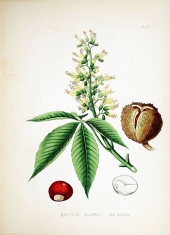posted 13 years ago
You can paper-bag drying herbs to keep the light out. A brown paper bag will pass moisture, but not the damaging parts of sunlight - it's kinda like an amber glass bottle. Put 'em in, tie the neck of the bag around the stems, hang.
No attic, or "top of the garage/barn" space? An attic which can manage "airy" to describe it (well ventilated) makes a good place to dry things, and keeps the house/building under it cooler.
If you have a gas oven with a pilot light, a screen to fit the oven shelves and REMEMBERING TO CHECK THE OVEN BEFORE TURNING IT ON works. Put a note on the thing if need be. Burnt herbs are no fun, and very frustrating. Many newer gas ovens don't have a pilot light, though - they use an electric ignitor instead, so you don't have the "gently heated dark space" a pilot-light oven does (and you can't bake in a power outage.)
I use an electric dehydrator for some things because the oven here is electric and 99% of the time, when I need to dry things it's humid as can be. A dehumidifier would be more efficient if I needed to do a whole roomful of stuff, but I have not needed that scale so far.
As far as I recall some of Euell Gibbon's books (check the local library) have descriptions of simple home methods for things like distilling essential oils on a very small scale with pots, pans and teacups (ie, not a still as such.)
The basics of making a tincture is "soak herbs in alcohol, then strain." Depending where you are and what the liquor stores sell Everclear or high-proof vodka are the usual places to start for alcohol if internal consumption is contemplated. You could use rubbing alcohol if all you wanted was something for external use - just don't confuse the two. Probably best to make a whole bottle (the stuff is cheap) of any rubbing alcohol tincture and then put it back in the original bottle, with an added label as to what it's been tinctured with, so as to prevent confusion...
Muddling towards a more permanent agriculture. Not after a guru or a religion, just a functional garden.








